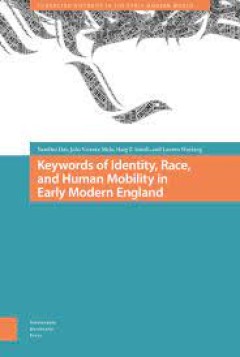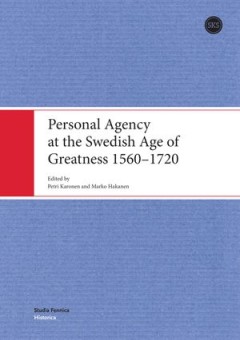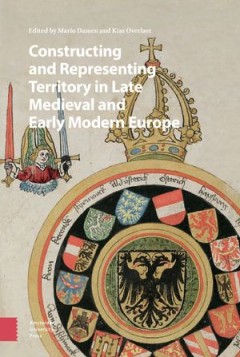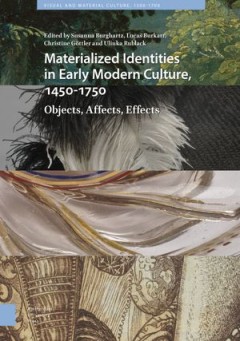Filter by

Keywords of Identity, Race, and Human Mobility in Early Modern England
What did it mean to be a stranger in sixteenth- and seventeenth-century England? How were other nations, cultures, and religions perceived? What happened when individuals moved between languages, countries, religions, and spaces? Keywords of Identity, Race, and Human Mobility analyses a selection of terms that were central to the conceptualisation of identity, race, migration, and transcultural…
- Edition
- -
- ISBN/ISSN
- 9789048552283
- Collation
- 358 halaman
- Series Title
- Connected Histories in the Early Modern World
- Call Number
- 305 DAS k

Personal Agency and Swedish Age of Greatness 1560-1720
Internationally, the case of early modern Sweden is noteworthy because the state building process transformed a locally dispersed and sparsely populated area into a strongly centralized absolute monarchy and European empire at the beginning of the 17th century. This anthology provides fresh insights into the state-building process in Sweden. During this transitional period, many far-reaching ad…
- Edition
- -
- ISBN/ISSN
- 9789522228826
- Collation
- -
- Series Title
- -
- Call Number
- 948.5

https://openresearchlibrary.org/content/d6ddf831-9ca9-46b0-9c43-1820c069ba9
In recent political and constitutional history, scholars seldom specify how and why they use the concept of territory. In research on state formation processes and nation building, for instance, the term mostly designates an enclosed geographical area ruled by a central government. Inspired by ideas from political geographers, this book explores the layered and constantly changing meanings of t…
- Edition
- -
- ISBN/ISSN
- -
- Collation
- -
- Series Title
- -
- Call Number
- -

Materialized Identities in Early Modern Culture, 1450–1750: Objects, Affect…
This collection embraces the increasing interest in the material world of the Renaissance and the early modern period, which has both fascinated contemporaries and initiated in recent years a distinguished historiography. The scholarship within is distinctive for engaging with the agentive qualities of matter, showing how affective dimensions in history connect with material history, and explor…
- Edition
- -
- ISBN/ISSN
- 9789048554058
- Collation
- -
- Series Title
- -
- Call Number
- 709.2 MAT m
 Computer Science, Information & General Works
Computer Science, Information & General Works  Philosophy & Psychology
Philosophy & Psychology  Religion
Religion  Social Sciences
Social Sciences  Language
Language  Pure Science
Pure Science  Applied Sciences
Applied Sciences  Art & Recreation
Art & Recreation  Literature
Literature  History & Geography
History & Geography